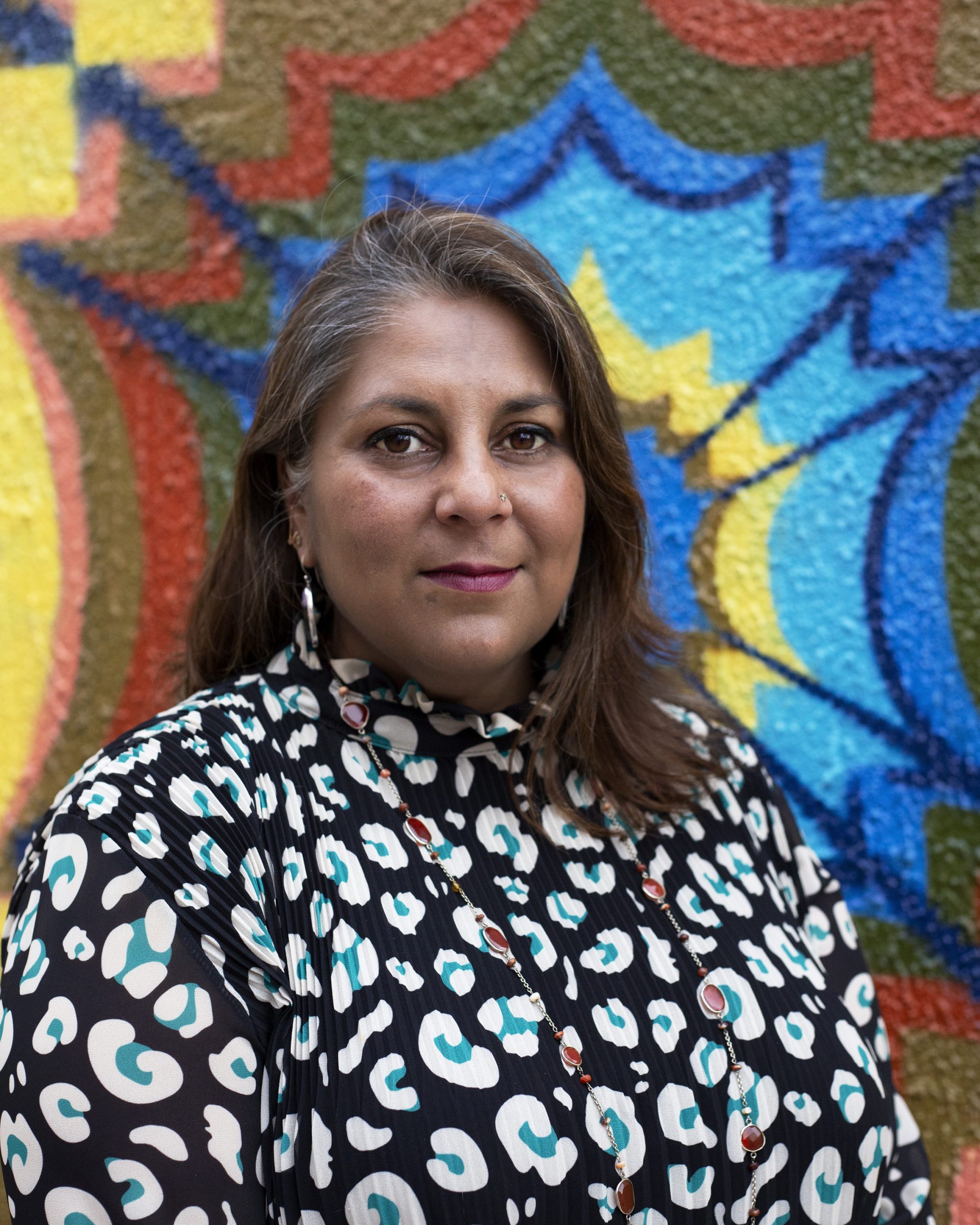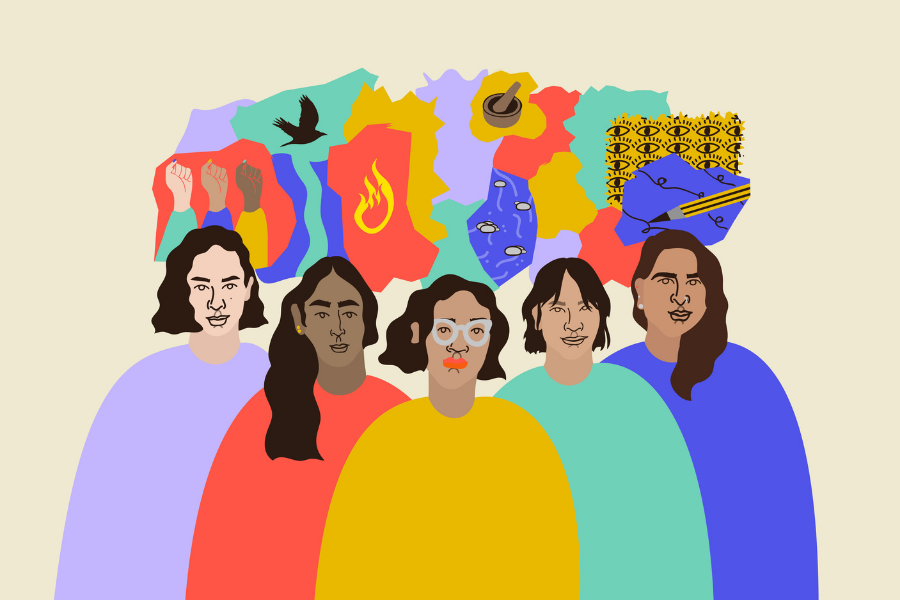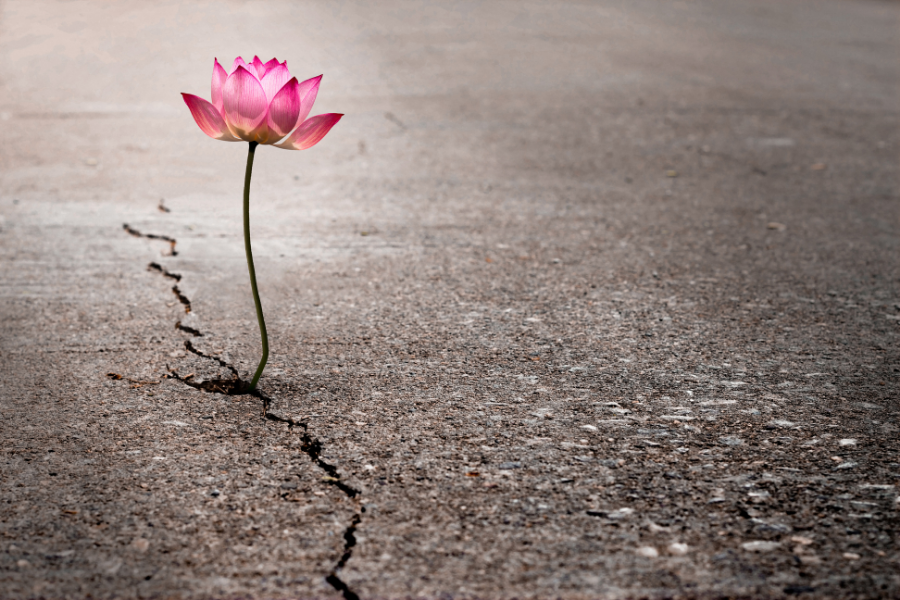Posted: 27 January 2022
Pooja Ghai: “It is time to level up, challenge and redefine the structures that do not work for us.”

It has been an exhilarating few months at Tamasha as we continue to strive for greater equity and inclusion for our Global Majority artists.
In context of this, we have been thinking about what our work means, and the values we attach to it. Tamasha is a vital company at the heart of British Theatre. The organisation has given platform to marginalised voices for over 30 years, giving hundreds of emerging artists of colour the skill set and support they need to springboard into the industry. I am proud of that, and we will continue to build on this legacy and the superpower that is our Tamasha Developing Artists programme. We are constantly striving to create a sense of home where our artists feel both rooted and connected.

Tamasha has an impressive and burgeoning digital portfolio. We have embraced the opportunities that digital brings through creative and innovative thinking with projects like WE ARE SHADOWS, DECOLONISING HISTORY and TELL DEM. There are numerous projects in development and discussion that will grow our digital offer as well as strengthening our talent development for both emerging and mid-career artists.
One of the issues I am keen to address is how organisations like Tamasha retain this perennial status as ‘emerging’, and how the work we explore, and produce is deemed a ‘risk’. It is time to level up, challenge and redefine the structures that do not work for us. We need to increase our financial capability so that we can build on our organisational resilience and scale of work. The ambition is to shift the focus of Tamasha from the small-scale to the mid-scale, whilst continuing to provide opportunities for our emerging artists. We need greater confidence from our venue partners, funding bodies and ACE that we can deliver on our ambitions with excellence, and that the work we produce is vital to the theatre ecology.

Tamasha is a place where artists can explore the prism of their lived experiences whilst embracing the pride of their cultural heritages. These stories reveal the truth of our migrant and colonial histories and its impact on society. To understand how we live now, we must examine how we lived then. The truth is, we have a deep and complex relationship with Empire, yet we remain ignorant to so much of its 400-year history. We need to decolonise our minds and shed light on what has been whitewashed from mainstream knowledge. We should be teaching the history of empire in our schools as part of the national curriculum. These histories are part of our national story and sharing them is a way for us to cultivate greater understanding and connection so we can celebrate and appreciate our differences instead of feeling alienated by them. Our current audio drama project does just this. THE WAVES is a series of five audio plays which explore the legacy of our colonial past on contemporary British life. Each play is set in a different part of the UK – Cardiff, Bristol, Manchester, Leamington Spa and Edinburgh. These compelling 25-minute plays let us into a world of colourism, beauty pageants, regeneration, dementia, racism and football, by responding to the impact of colonialism on their family heritages.

In May, LOTUS BEAUTY by Satinder Chohan opens at Hampstead theatre. Funny and poignant the play follows the intertwined lives of five multigenerational women from the Sikh Punjabi community. The play explores themes of identity, female friendship, domestic violence and suicide. It draws on the complexities of being a migrant and building a community together. I am excited about the talks and post-show discussions we are building around the show – it is a chance to get to know the community and to open up the conversations that are most pertinent to them at this time. I do hope to see some of you there.
As we come out of the pandemic it feels like the sector as a whole are looking at new ways to collaborate, produce and tour work. The conversations that have taken place since I have been in post with venues, organisations and freelancers have been both encouraging and inspiring. Leadership is changing, and with more leaders from the Global Majority taking up post, conversations and decisions around programming and the stories we want to develop are becoming more robust. This gives me hope for what the future looks like for organisations like Tamasha and for the future of theatre.
To keep up-to-date with all of our blog posts, why not join our mailing list?